Examining Communities of Practice
In this edition of the LINC Blog, Claire Butterly, Lead Content Developer of the LINC+ CPD Programme, examines the reasons for and benefits of communities of practice, focusing on the first package of the LINC+ CPD Programme, ‘Communities of Practice in Early Learning and Care.’
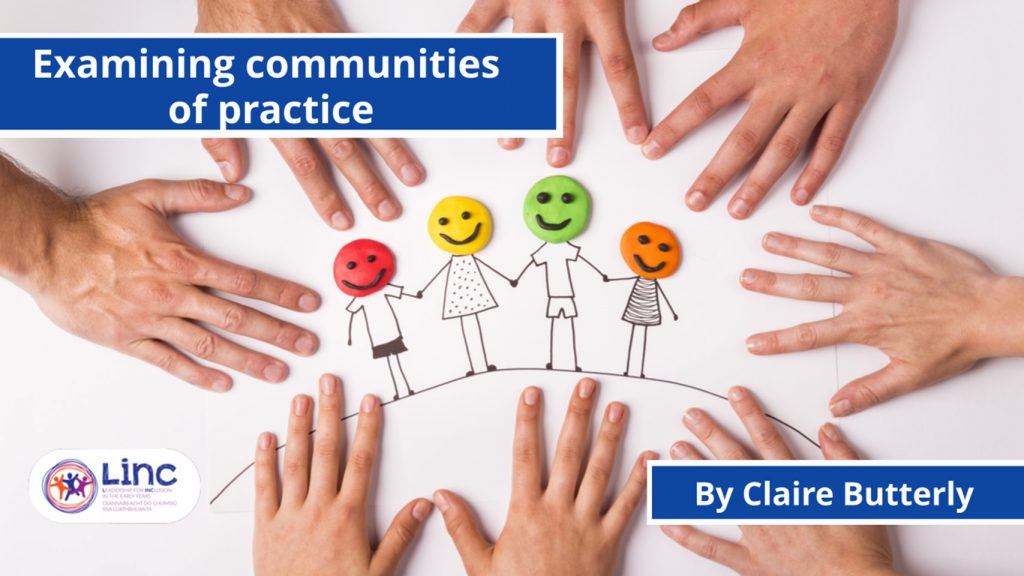
What is a community of practice?
Communities of Practice have been in existence for a long time throughout the world, however the term can be seen as a relatively new concept within Ireland’s Early Learning and Care sector. On the LINC+ CPD Programme, which is a Continuing Professional Development (CPD) training programme for graduates of the LINC Level 6 Programme, which is designed to support the inclusion of children with diverse needs in the early years we have an entire Package which is dedicated to exploring Communities of Practice within Early Learning and Care, with the hope of inspiring and empowering our Inclusion Coordinators (INCO’s) to create and engage in Communities of Practice. This is to foster our INCOs professional identity, to further develop their competencies and enhance their knowledge and professional and personal development. Within this blog, we would like to provide you with further insight into Communities of Practice.
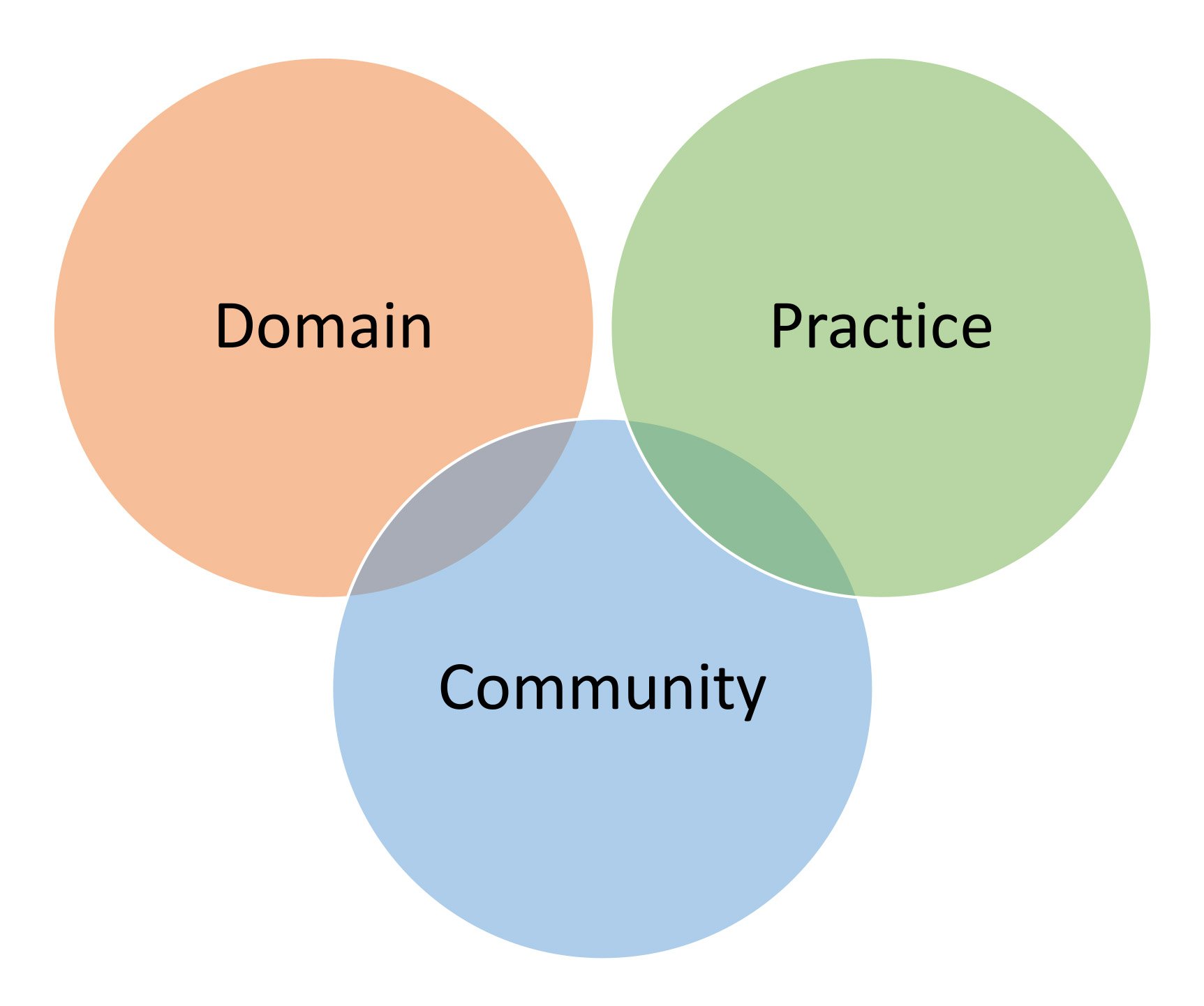
A Community of Practice is a group of people who have a shared interest or concern coming together and through interacting on a regular basis share knowledge and develop practice. Communities of practice consists of 3 elements – A Domain, A Community and A Practice. The domain is the interest that brings to group together. For example, on the LINC+ CPD programme, the shared interest or Domain can be leading inclusion. The community is the members who share the domain. The members of the community interact with each other, share knowledge and expertise, engage in reflective practice and co-create knowledge. The practice is created by those engaging in the community of practice. Each community of practice will be unique to its individual members, as each early childhood teacher and inclusion coordinator bring their own knowledge, practice, experience and expertise to the group.
There are lots of benefits by engaging in communities of practice. Communities of Practice allow for a focused time and space to engage in professional dialogue, with likeminded people, where you can grow your professional identity. Self and group reflection is a critical part of communities of practice as it allows inclusion coordinators and early childhood teachers to begin to question their ‘why’. It is through this questioning and reflecting on practice that changes in knowledge and practice can begin to take place. In communities of practice, this reflection takes place with the support of a facilitator, who leads and guides the community of practice conversation, and critical friends, who ask questions to further provoke thought. As those working in the early childhood sector will know, the sector can be isolating at times for those who work independently or solely in their setting. Through engaging in communities of practice it can support the wellbeing of inclusion coordinators and early childhood teachers. This is because you are coming together with like-minded people, who have walked in your shoes, and can offer an ear to listen and support you in reflecting, problem solving and creating solutions to overcome the difficulties or reasons that may be causing concern. Skills such as leadership, mentoring, change management, reflection and confidence can all grow through regular and meaningful engagement in communities of practice.
Communities of practice can engage in lots of different types of activities such as visits to other early learning and care settings to explore different learning environments, play provocations, methods or planning and observations. Communities of practice can also attend conferences and seminars as a group and reflect on the experience afterwards to further share learning and practice. Communities of practice can engage in discussion on topics and reflect and brainstorm any difficulties that may be encountered. As Etienne Wenger-Trayner (2021) says it is important to reflect on what your struggles are, as overcoming these struggles together will add value to the community for each member. Communities of practice can be used to reuse assets, is there anything in your setting that you no longer need that you could offer to other community members? Could you use your community of practice to share information or ask for advice? The community of practice might also map what knowledge is currently in the group and identity any gaps in expertise, for example could you invite someone who runs a Nature or Outdoor preschool to join your community? As community of practice can be seen as a professional community, another activity which you could engage in could be inviting other professions to engage and share practice. For example, speech and language therapists or occupational therapists may be invited to attend.
In thinking back to the role of the inclusion coordinator, by engaging in communities of practice, it can help you to fulfil and enhance your role in leading inclusive culture, inclusive practice and inclusive pedagogy. To mention but a few, by engaging with other INCOs it will support you in sharing and developing good practice; it will help you to further develop your leadership skills; it gives you a safe space to engage in conversations in relation to the access and inclusion model and can support you in creating strategies within your setting and it can give you a forum to discuss national and local developments.
There are a number of things to consider if you would like to create or engage with a community of practice. If you are engaging with the LINC+ CPD programme, we have taken the first steps for you and are supporting the facilitation of communities of practice on Moodle, which is our virtual meeting space. If you want to take these communities of practice into the physical realm, firstly, someone needs to take the lead and plant the seed and start the community of practice (Curtis et al., 2013). Perhaps you might contact some settings in your locality and see if any inclusion coordinators or early childhood teachers are interested in forming a community. Alternatively, you could create a learning community within your setting, and this may grow into inviting other settings to join. You will also need to consider the structure, purpose and value for the community of practice, as well as deciding on a venue. This could be a physical venue or it could be an alternative virtual venue. Someone will also need to take on the role of facilitator within the community of practice. Overtime, facilitators and members of the community can begin to take on the role of critical friend.
There are so many benefits to be gained from engaging in a Community of Practice for the Inclusion Coordinator, for the setting and each child and family who attend your service. We asked the INCOs who are engaging in the LINC+ CPD programme to tell us what they felt the benefits of engaging in an INCO Community of Practice are, and this is what they said.
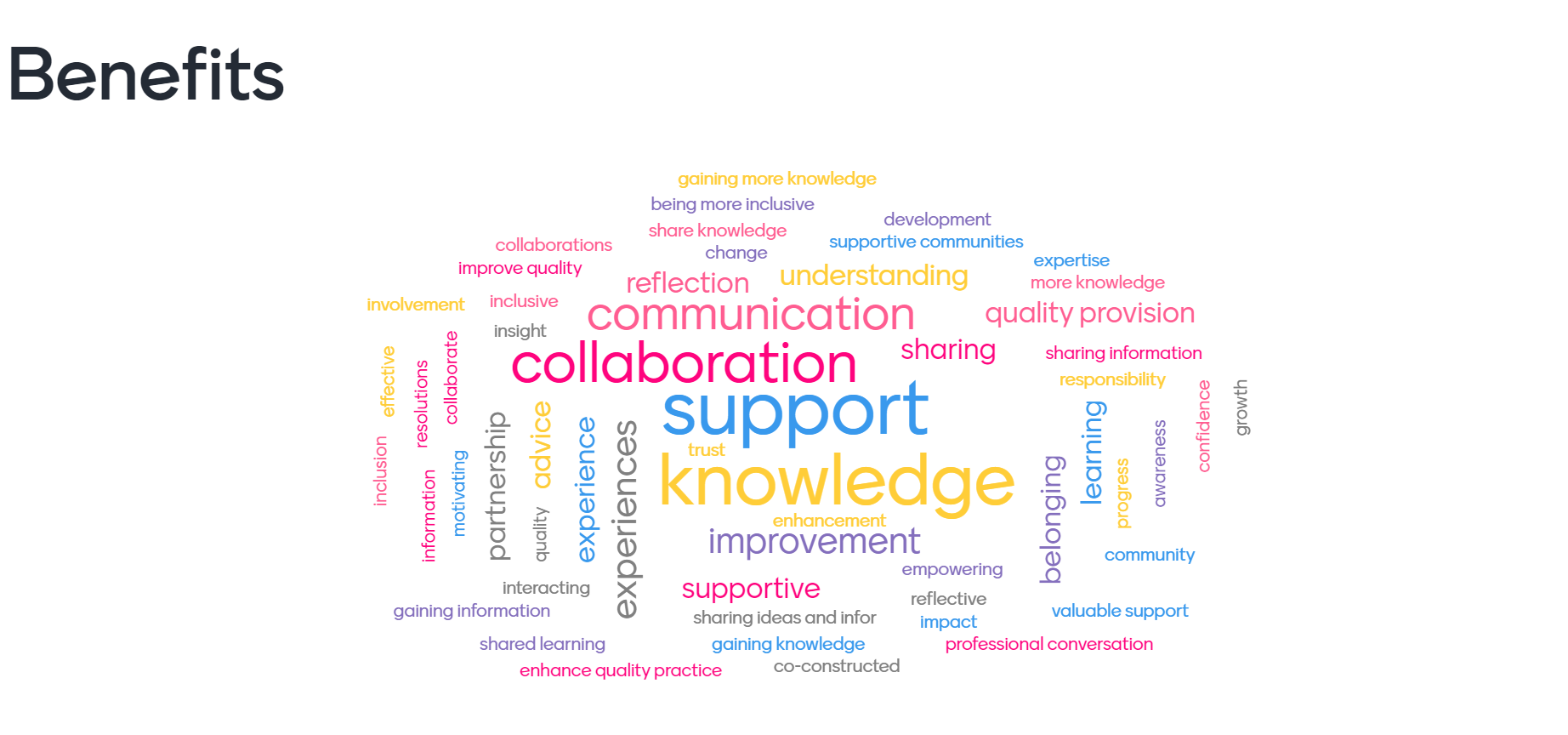
Some of the key words jumping out here are collaboration, support, knowledge, reflection and communication. So, ask yourself, will you be the person to take the lead and plant the seed and start a community of practice today?
References
Curtis, D., Lebo, D., Cividanes, W.C.M., and Carter, M. (2013) Reflecting in Communities of Practice. A Workbook for Early Childhood Educators. Minnesota. Red Leaf Press
Wenger, E. (2014) Communities of Practice. A Brief Introduction. Available https://scholarsbank.uoregon.edu/xmlui/bitstream/handle/1794/11736/A%20brief%20introduction%20to%20CoP.pdf?sequence=1&isAllowed=y [Accessed 20 Feb 2022].
Wenger-Trayner, E. (2021) Three tips for developing CoPs, available https://youtu.be/PhH0PiuaXZ8

Claire Butterly
Lead Content Developer of LINC+ CPD Programme
Claire Butterly has graduated with a MA in Child, Youth and Family Studies and a BA in Early Childhood Education and Care, both from the Institute of Technology, Carlow, as well as completing a number of other training courses over the years. Claire has a keen interest in upskilling and studying and is currently completing a MA in Mentoring, Management and Leadership in the Early Years in Dublin Institute of Technology. Before joining the LINC team, Claire worked as an Early Years Quality Mentor with an Area Based Childhood site in Bray. Claire supported the community services in developing their Curriculum Statements and in developing and piloting a Transitions from preschool to primary school programme. Claire has tutored level 5-8’s for a variety of different companies and institutes, as well as working directly with children in a variety of early years settings. Claire has a keen interest in the development and upskilling of the Early Years Sector.
You may also like:

Empowering Inclusive Practice Through Continuing Professional Learning: Interim Evaluation Report Highlights Positive Impact of LINC+ CPD Programme
Empowering Inclusive Practice Through Continuing Professional Learning: Interim Evaluation Report Highlights Positive Impact of LINC+ CPD Programme New report explores how sustained professional learning and Communities of Practice are supporting Inclusion...
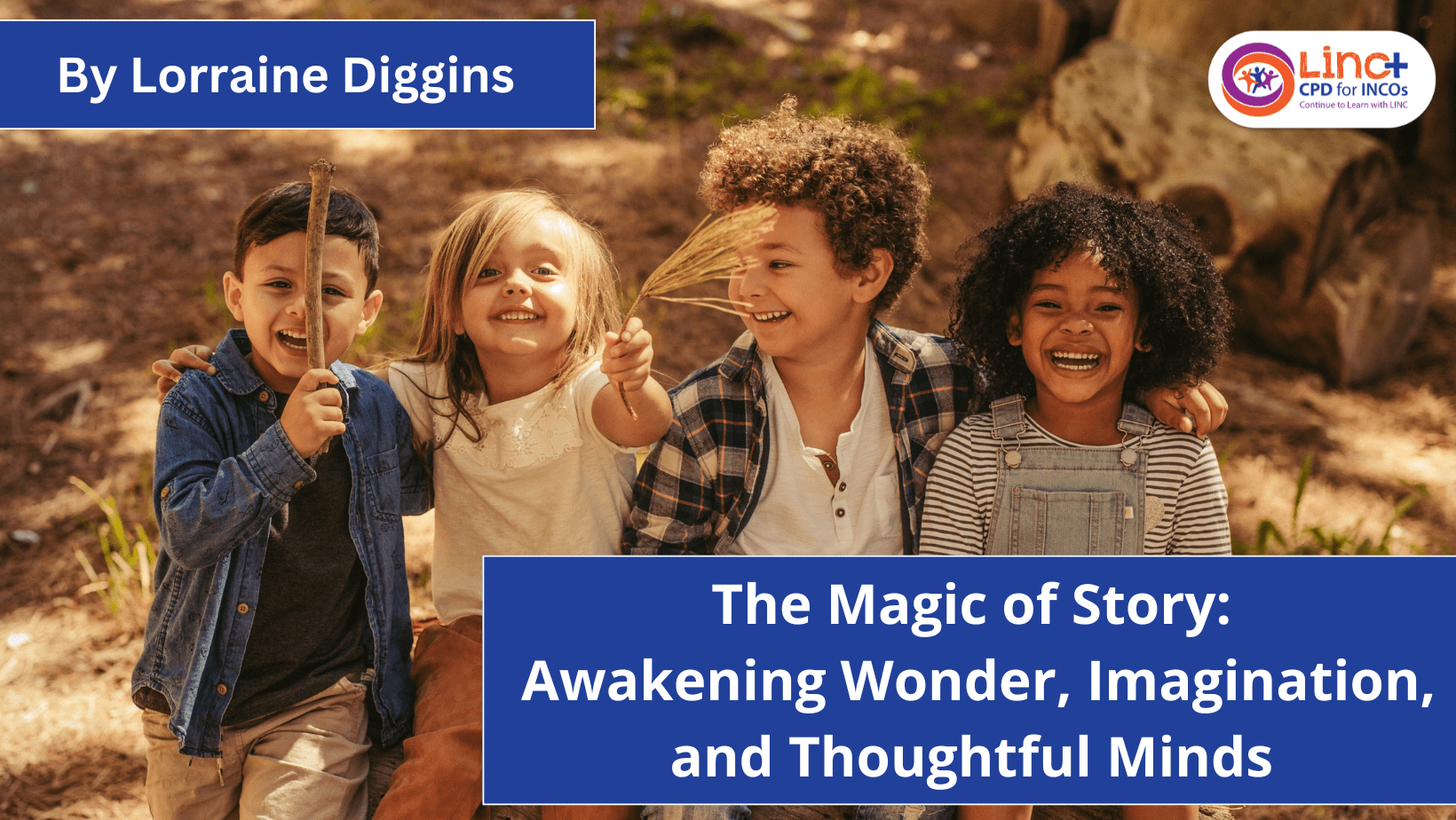
The Magic of Story: Awakening Wonder, Imagination, and Thoughtful Minds
The Magic of Story: Awakening Wonder, Imagination, and Thoughtful Minds In this edition of the LINC Blog, Lorraine Diggins, LINC+ CPD Programme Tutor, invites us into the magical world of storytelling in early years education. Reflecting on her experience as a Forest...
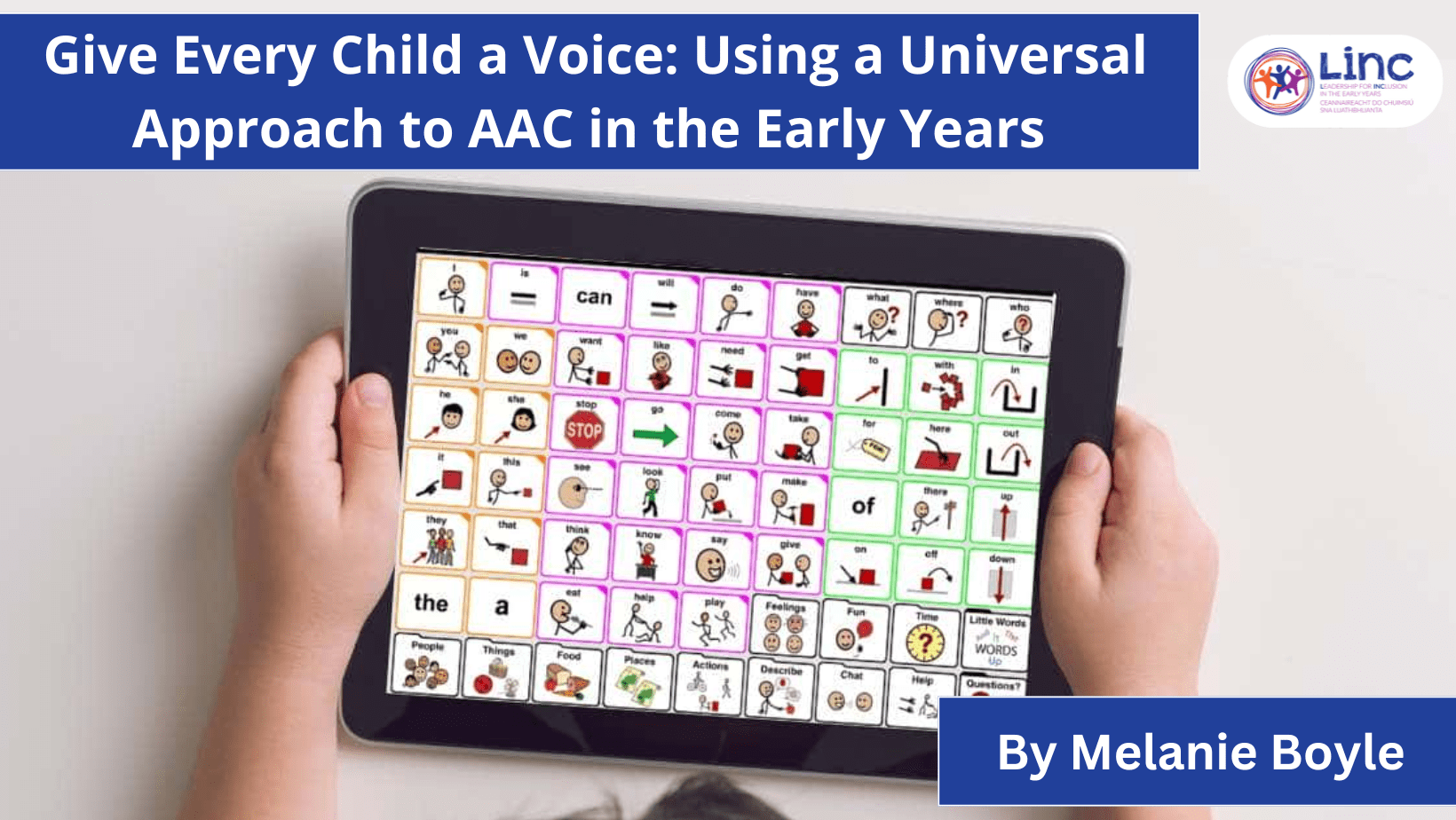
Give Every Child a Voice: Using a Universal Approach to AAC in the Early Years
Give Every Child a Voice: Using a Universal Approach to AAC in the Early Years In this edition of the LINC Blog, AAC Coach and SEN Teacher Melanie Boyle shares her insights on using a universal approach to AAC in early years settings. Drawing on her dual...
